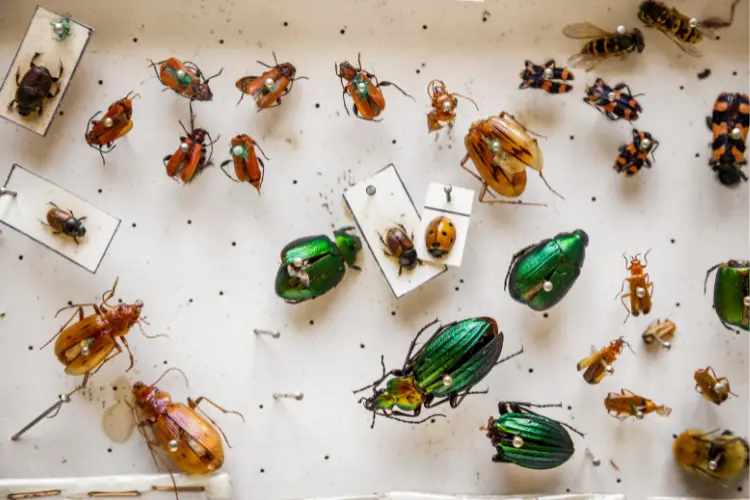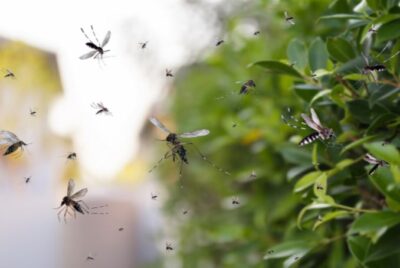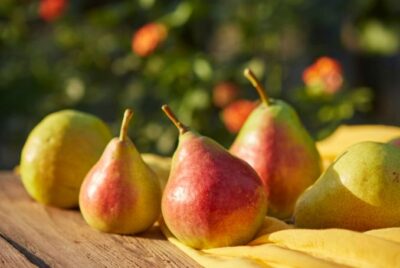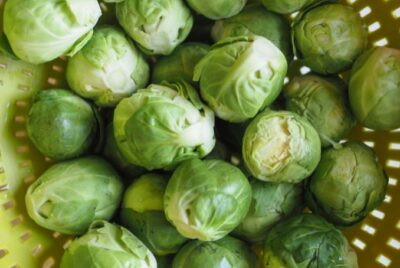Best Bugs and Insects for Chicken Nutrition
In the pursuit of sustainable and natural poultry farming practices, incorporating insects into chicken feed has emerged as an innovative solution. Not only does this approach align with the natural dietary preferences of chickens, but it also offers substantial nutritional benefits, contributing to healthier and more productive flocks.
This article explores some of the most beneficial bugs and insects for chicken nutrition, highlighting their advantages and how they can be integrated into poultry diets.
Benefits of Feeding Chickens Insects and Bugs
Feeding chickens insects can offer numerous benefits, both for the chickens and for the sustainability of the farming practices
- Nutritional Value: Insects are high in protein and other nutrients, making them an excellent food source for chickens. They can help improve the health and growth of chickens, leading to better egg production and meat quality.
- Natural Diet: Insects are a natural part of a chicken’s diet. In the wild, chickens will often forage for bugs as a significant portion of their food intake. Providing insects in their diet can mimic their natural feeding behaviors and contribute to their overall well-being.
- Environmental Sustainability: Raising insects for feed can be more environmentally sustainable than producing traditional feed options like soy or corn. Insects require less land, water, and feed to grow, which reduces the environmental footprint of chicken feed production.
- Waste Reduction: Some insects can be fed on organic waste materials, including food waste. This provides a cost-effective feed source and also helps in managing and reducing waste.
- Disease Reduction: Incorporating insects into chicken feed can also contribute to disease reduction. Insects can be a cleaner, more biosecure feed option than some traditional feeds that might be contaminated with pathogens.
- Enhanced Egg and Meat Quality: The nutritional benefits of insects can translate into higher-quality eggs and meat. Chickens fed on a diet that includes insects may produce eggs with better nutritional profiles and meat with improved taste.
- Behavioral Benefits: Foraging for insects can provide mental and physical stimulation for chickens, promoting natural behaviors and potentially reducing stress and aggressive behaviors.
- Cost-Effectiveness: Although initial costs might be higher, the long-term benefits of sustainability, waste reduction, and potentially lower feed costs can make feeding chickens insects a cost-effective option.

Best Insects and Bugs for Chickens
Dubia Roaches
Dubia roaches, serve as another excellent feed option for chickens due to their high protein content and essential fats. These insects are resilient and low maintenance, and able to thrive in various conditions with minimal care.
Moreover, you can raise roaches on organic waste, reducing feed costs and contributing to a circular waste management system. Their rapid reproduction rate ensures a steady supply, making them a reliable feed source for larger poultry operations.
Read also: Dubia Roaches for Chickens: Tips, Tricks, and Benefits
Earthworms
Earthworms offer a dual benefit as chicken feed: they are not only a rich source of protein and minerals such as iron and zinc but also encourage natural foraging behavior in chickens. Allowing chickens to hunt for earthworms can stimulate physical and mental activity, closely mimicking their natural environment.
This foraging process can also benefit soil health, as chickens aerate the ground in search of worms, although it’s important to manage this sustainably to maintain earthworm populations.
Beetle Larva
Beetle larvae, often referred to as grubs, are a nutritious food source for chickens, offering high levels of protein and essential fats that can contribute to the growth and health of poultry.
These larvae are typically easy to digest and can be a part of enriching the diet, especially during the larvae’s growth phase.
Rearing beetle larvae for chicken feed can also be sustainable, as many species can be grown on decomposing organic matter
Black Soldier Fly Larvae
Black Soldier Fly Larvae (BSFL) are increasingly recognized for their value in poultry diets due to their high protein content, balanced amino acid profile, and high levels of calcium. This makes BSFL particularly beneficial for laying hens, contributing to stronger eggshells and overall bird health.
The larvae of the Black Soldier Fly have the added benefit of being able to consume a wide range of organic waste materials.
Read also: Black Soldier Fly Larvae for Chickens: A Nutrient-Rich Solution
Crickets
Crickets are a highly nutritious choice for chicken feed, packed with essential proteins, amino acids, and vitamins such as B12. Their small size and ease of digestion make them an ideal supplement to a chicken’s diet.
Crickets are also an environmentally friendly option; you can farm them with minimal water and space requirements.
Read also: Do Chickens Eat Crickets? Everything You Need to Know

Maggots
You can use maggots, the larvae of various fly species, as chicken feed, providing high protein content and aiding in waste reduction. They can be produced by allowing flies to lay eggs in organic waste materials, with the resulting larvae serving as an efficient way to break down the waste while also producing feed.
However, it’s important to manage maggot production carefully to ensure hygiene and prevent the spread of diseases.
Read also: Can Chickens Eat Maggots? The Truth About This Protein-Rich Snack
Mealworms
Mealworms, the larvae of the mealworm beetle, are another excellent feed choice for chickens. They are rich in protein and other nutrients, making them a tasty and nutritious snack for poultry.
You can easily farm mealworms in large quantities, even in small spaces, making them accessible for both small-scale and commercial poultry keepers. Their ease of cultivation and nutritional benefits make mealworms a popular choice for supplementing chicken diets.
Read also: Mealworms for Chickens: A Guide to Breeding and Benefits
Incorporating Insects into Chicken Diets
You should introduce these insects into chicken diets thoughtfully to ensure a balanced nutritional intake. While insects provide high protein levels and other nutrients, they should complement other feed components like grains, seeds, and greens to fulfill all dietary requirements of chickens.
I also advise sourcing insects from reputable suppliers or raising them under clean, controlled conditions to minimize the risk of disease transmission.
Read also: DIY Insect Farming: Essential Tips for Beginners
Conclusion
Insects offer a sustainable, nutritious, and natural feeding option for chickens, aligning with their instinctual foraging behaviors and dietary needs. These insects can significantly enhance poultry health, egg production, and meat quality.
As the agricultural sector continues to evolve towards more sustainable practices, the role of insects in animal nutrition is set to become increasingly prominent, offering a win-win solution for both poultry health and environmental sustainability.




